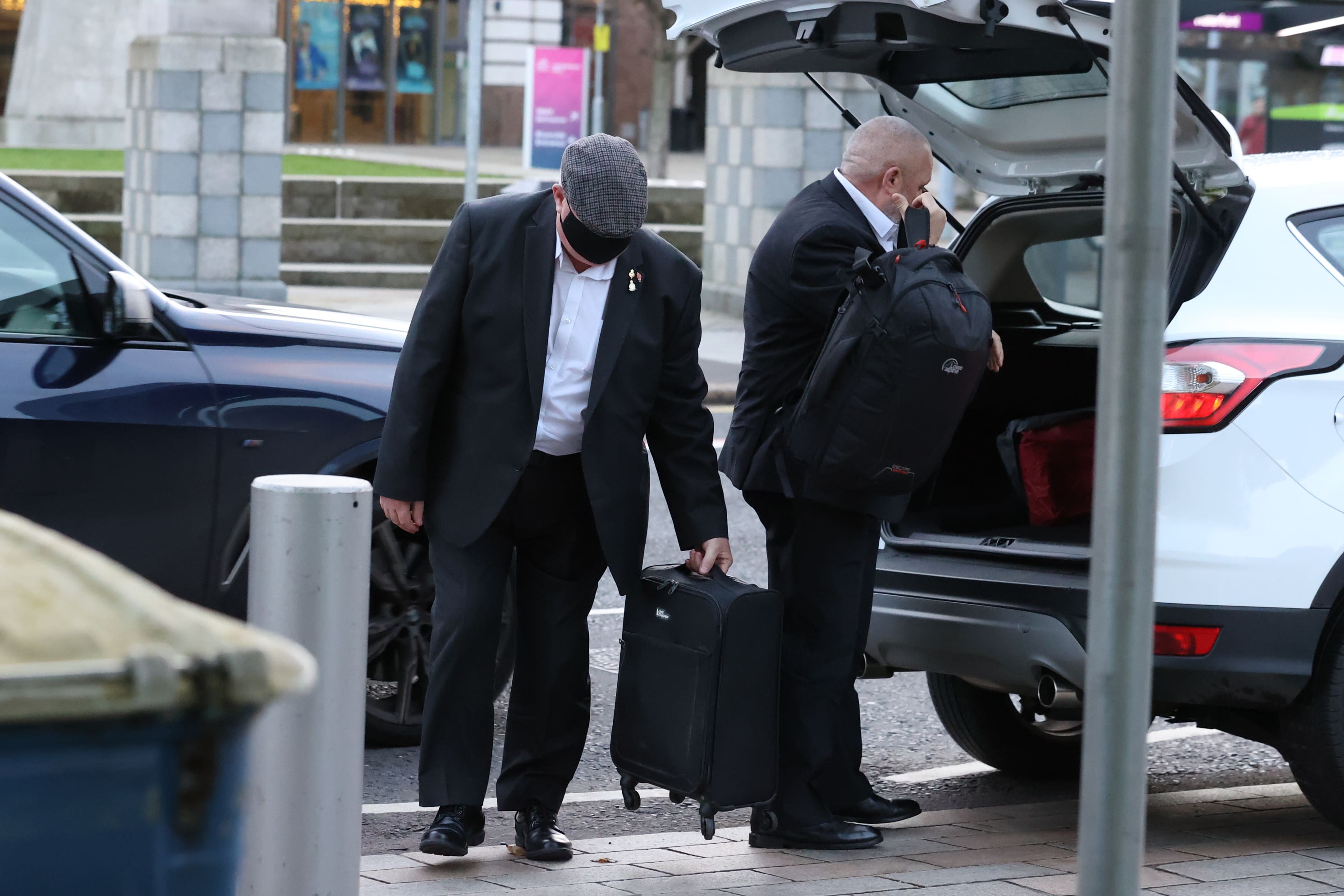Former soldier Holden guilty over 1988 Troubles killing at army checkpoint
Aidan McAnespie was killed in Co Tyrone moments after walking through a border security checkpoint in 1988.

Your support helps us to tell the story
From reproductive rights to climate change to Big Tech, The Independent is on the ground when the story is developing. Whether it's investigating the financials of Elon Musk's pro-Trump PAC or producing our latest documentary, 'The A Word', which shines a light on the American women fighting for reproductive rights, we know how important it is to parse out the facts from the messaging.
At such a critical moment in US history, we need reporters on the ground. Your donation allows us to keep sending journalists to speak to both sides of the story.
The Independent is trusted by Americans across the entire political spectrum. And unlike many other quality news outlets, we choose not to lock Americans out of our reporting and analysis with paywalls. We believe quality journalism should be available to everyone, paid for by those who can afford it.
Your support makes all the difference.A former soldier has been found guilty of killing a man at an army checkpoint in Northern Ireland more than 30 years ago.
David Jonathan Holden, 53, who had been on trial at Belfast Crown Court accused of the manslaughter of Aidan McAnespie in February 1988, is the first veteran to be convicted of a historical offence in Northern Ireland since the Good Friday Agreement.
Mr McAnespie, 23, was killed in Aughnacloy, Co Tyrone, moments after walking through a border security checkpoint.
He was on his way to a local Gaelic Athletic Association club when he was shot in the back.
Holden had admitted firing the shot which killed Mr McAnespie but had said he had fired the weapon by accident because his hands were wet.
But trial judge Mr Justice O’Hara said he was satisfied beyond reasonable doubt that Holden was guilty of manslaughter by gross negligence.
He found that Holden had pointed a machine gun at McAnespie and pulled the trigger, while assuming the gun was not cocked.
He said: “That assumption should not have been made.”
He also said the former soldier had given a “deliberately false account” of what happened.
The judge said: “The question for me is this – just how culpable is the defendant in the circumstances of this case?
“In my judgment he is beyond any reasonable doubt criminally culpable.”
The judge said the weapon controlled by Holden was “lethal in the extreme”.
He added: “It is suggested on his behalf that it was not exceptionally bad or reprehensible for him to assume that the weapon was not cocked. I fundamentally disagree.
“In my judgment this was the ultimate ‘take no chances’ situation because the risk of disaster was so great.
“The defendant should have appreciated at the moment he pulled the trigger that if the gun was cocked deadly consequences might follow.
“That is not something which is only apparent with hindsight.
“The defendant took an enormous risk for no reason in circumstances where he was under no pressure and in no danger.
“In light of the foregoing I find the defendant guilty of the manslaughter of Aidan McAnespie by gross negligence.”
Holden is set to be sentenced in the New Year.
Speaking outside court, Mr McAnespie’s brother Sean became emotional as he recalled family members who had not lived to hear the judgment.
“We waited 34 years, we never thought we would have got it,” he said.
“I’m thinking of my father and my mother that prayed and prayed for this day, and they’re not here to see it.
“As a family we’re very relieved and happy. We’ve such a big family, cousins, community and relations to help us through this, it took the whole lot to get us over the line.”
Holden is a former Grenadier guardsman from England, whose address in court documents was given as c/o Chancery House, Victoria Street, Belfast.
The case was heard in a Diplock format without a jury sitting.
Supporters of Holden gathered outside the court each day the trial sat.
The trial proceeded amid continuing controversy over government plans to deal with Northern Ireland’s troubled past.
The Northern Ireland Troubles (Legacy and Reconciliation) Bill proposals provide an effective amnesty for those suspected of killings during the conflict, if they agree to co-operate with a new body, known as the Independent Commission for Reconciliation and Information Recovery (Icrir).
The Bill would also prohibit future civil cases and inquests related to Troubles crimes.
The Holden case is one of a series of high-profile prosecutions of veterans that have been pursued in Northern Ireland in recent years.
Also speaking outside court, Paul Young, national spokesman for the Northern Ireland Veterans Movement, said he was saddened by the verdict.
“Veterans will be deeply disappointed by this verdict, I’m saddened by it, but it’s not over for David yet because his team, as far as I’m aware, are going to appeal the decision, and I think eventually, if necessary, go to the Supreme Court,” he said.
“I understand that the family are going to feel completely different to us veterans, and they will have their time to say what they say.
“But for us the witch hunt continues, that’s why we support this legacy Bill that is going through Parliament right now which will stop any further prosecutions of veterans that have been previously investigated.”